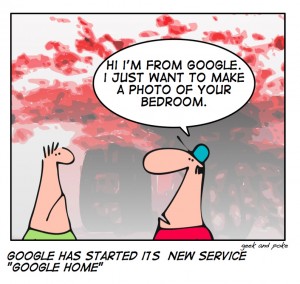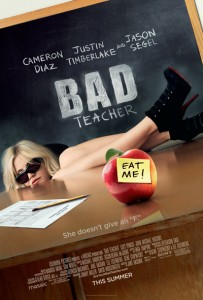 It’s been years since I tried to figure out what zoo animal I most resemble, or which character from Twilight I am. I’ve also never tried to recruit people to help me take down an elven kingpin, or whatever it is the kids on Facebook play at these days. Even so, when I first got on Google+ a couple of weeks ago, I was nonplussed by how sparse it seemed. Of course, there wasn’t much in my stream yet at that point. But, still, no game notifications, no little farmville icons, just lots and lots of white space.
It’s been years since I tried to figure out what zoo animal I most resemble, or which character from Twilight I am. I’ve also never tried to recruit people to help me take down an elven kingpin, or whatever it is the kids on Facebook play at these days. Even so, when I first got on Google+ a couple of weeks ago, I was nonplussed by how sparse it seemed. Of course, there wasn’t much in my stream yet at that point. But, still, no game notifications, no little farmville icons, just lots and lots of white space.
I’ve since figured out that what’s replaced all that is people, you know, exchanging their own thoughts and stuff, mostly in the form of words.
Weird.
I spent several hours poking around Google+ that I should have spent sleeping last night, trying to get the hang of it. If I chatted with you last night, then this will mostly be repetition, and you might want to skip it.
The first thing I figured out was that I had grossly misunderstood what circles were all about. I actually had a few inklings before last night that maybe I didn’t get it, but when I tried to think of a proper analogy, I got a sense of just how thorough my ignorance was. And you know, I’m not a dumb person, nor am I a particularly technologically un-savvy one, so I have to figure I’m not the only one.
For the past two weeks I’ve been posting almost nothing, but each time I’ve gotten a notification that someone had added me to a circle, I dutifully added them back. In my mind, this was analogous to accepting friend requests coupled with putting people into Facebook groups.
Even though groups do exist in Facebook, I had a vague sense that these circles were being trumpeted as one of Google+’s strengths. So I had some awareness that Google+ makes it easier–encourages you, arguably–to control to whom your messages go. Alright, then, so I was accepting friend requests and deciding which subset of my messages my friends would get. And that’s accurate enough, as far as it goes.
Except . . . if you think about it, then, putting you in a circle is about wanting to control the messages I send to you, right? Whereas following someone on Twitter, to switch analogies, is about wanting to receive their outgoing messages. So was putting someone in a circle tantamount to asking them to accept spam from me?
Confounding the issue was the fact that I could see that some people had visible posts even though I hadn’t put them in a circle yet. I hadn’t quite figured out that there is also an option to send messages to everyone including people who aren’t your followers.
And then if I did use Twitter as an analogy instead of Facebook, circles were like lists, and it was possible to follow people without them following me back. But again, not quite like Twitter, because everyone kept telling me circles were about controlling your outgoing messages, not your incoming ones. And while you can put someone in a circle and then exclude them from appearing in your stream, that’s kind of a crappy thing to do, isn’t it? That really means “I want to talk at you, but I don’t want to hear anything you have to say.”
And what exactly did it mean if I put you in a circle but you did not reciprocate? What exactly could I see? And what difference did it make what circle I put you in if you never returned the favor?
I think that’s what made it so confusing to me: while it is possible to use circles to control whose stuff you read, I was coming at it from the standpoint that you wouldn’t add someone unless you wanted to read them–yes, I see the glaring flaw in that logic now–and so putting someone in a circle seemed like an act of faith. It seemed like saying, “I’d like to communicate with you back and forth, and I’m preemptively deciding which of my groups of recipients you will occupy, even though you haven’t yet agreed to receive my messages.”
Eventually, with the help of some friends, I refined that understanding a bit more. At this point, I’m proud to say that I think I get it. Like I said, I can’t possibly be the only one who didn’t get it, so pay attention, ’cause I’m about to lay some understanding on you. Putting someone in a circle is saying, “I’d like to have the ability send you the messages I send to a specific group that you have not yet agreed to join (but that I’ve mentally categorized you under anyway)–or to you specifically–and I’d like to have the option to read the messages you send to the uncaring world at large, along with any that you care to send to whatever shoeboxes you deign to include me in (understanding that you may not actually wish to notice me at all), along with any you care to send specifically to me.”
Okay. The more I thought about it and the more it was explained to me, the more I could see that they’d thought of almost every contingency in my communication needs. (One exception a friend pointed out: you may wish to ignore someone, but if that person comments on the postings of somebody you do follow, then you will see that person there, like it or not.)
I think this offers me somewhat more ability to customize my sending and receiving than facebook does. Google+ also apparently doesn’t limit how many people you can follow and be followed by, though that’s hardly an issue for me at this point. Google+ seems to have other cool communicating features that I haven’t explored yet, like hangouts. So while they don’t have the silly games, they do bring the shiny elsewhere.
I do wonder if the absence of games–which is not entirely a bad or good thing–is more about the newness of it all. So far I haven’t really seen any third-party apps for Google+. Does that mean that it’s not part of the landscape, or just that nobody’s developed them yet? It would be something if third party apps–and the total absence of oversite for how they abused everybody’s privacy–turned out to be Facebook’s undoing, wouldn’t it?
Anyway, on to the bottom line. I can see the appeal of Google+’s organization. But at this point, very few of the people I communicate with are on it. Obviously that will change. It’s the nerd frontier, right now. But until and unless Facebook goes the way of Myspace, there will always be a substantial part of the network of friends I’ve built up who will be there and not on Google+. (I’m not sure the converse will ever be true. At least not until Facebook is irrelevant.) So okay, this is kind of cool, but what the heck do I do with it?
I could see me using Google+ or Facebook exclusively of each other, but having both, they both seem to fit very similar niches in my communication arsenal. And I don’t want to cross-post stuff to both, because I personally find people who cross-post the exact same content across Twitter and Facebook, say, annoying. Except on Facebook I can set my feed to ignore posts that come directly from Twitter. If I cut and paste the same stuff into my wall and my stream, I’ll be spamming my friends on both platforms, and they’ll have no way to avoid it other than to ignore me altogether.
Which leaves me . . . up in the air, I guess. For now I’ll play it by ear. Eventually I got a sense of what kinds of things I liked to put on Twitter and what kind on Facebook. I guess I’ll post on Google+ when I feel like it and on Facebook when I feel like it, and see what happens.
Here’s what’s annoying, though: In the meantime, until one of the two dies a Myspace-type death, I now have one more place I have to look to keep up with my friends.











 Subscribe via RSS
Subscribe via RSS